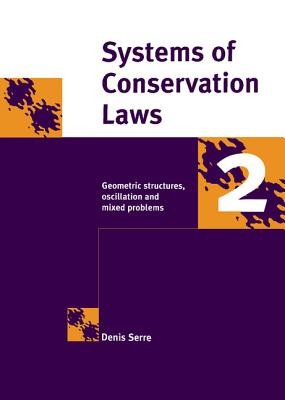
- We will send in 10–14 business days.
- Author: Denis Serre
- Publisher: Cambridge University Press
- ISBN-10: 0521633303
- ISBN-13: 9780521633307
- Format: 18 x 25.7 x 1.8 cm, kieti viršeliai
- Language: English
- SAVE -10% with code: EXTRA
Reviews
Description
Systems of conservation laws arise naturally in physics and chemistry. Continuing where the previous volume left off, the author considers the maximum principle from the viewpoints of both viscous approximation and numerical schemes. Convergence is studied through compensated compactness. The author applies this tool to the description of large amplitude wave propagation. Small waves are studied through geometrical optics. Special structures are presented in chapters on rich and Temple systems. Finally, Serre explains why the initial-boundary value problem is far from trivial, with descriptions of the Kreiss-Lopatinski condition for well-posedness, with applications to shock wave stability, and certain problems in boundary layer theory. Throughout the presentation is reasonably self-contained, with large numbers of exercises and full discussion of all the ideas. This will make it ideal as a text for graduate courses in the area of partial differential equations.
EXTRA 10 % discount with code: EXTRA
The promotion ends in 22d.21:05:02
The discount code is valid when purchasing from 10 €. Discounts do not stack.
- Author: Denis Serre
- Publisher: Cambridge University Press
- ISBN-10: 0521633303
- ISBN-13: 9780521633307
- Format: 18 x 25.7 x 1.8 cm, kieti viršeliai
- Language: English English
Systems of conservation laws arise naturally in physics and chemistry. Continuing where the previous volume left off, the author considers the maximum principle from the viewpoints of both viscous approximation and numerical schemes. Convergence is studied through compensated compactness. The author applies this tool to the description of large amplitude wave propagation. Small waves are studied through geometrical optics. Special structures are presented in chapters on rich and Temple systems. Finally, Serre explains why the initial-boundary value problem is far from trivial, with descriptions of the Kreiss-Lopatinski condition for well-posedness, with applications to shock wave stability, and certain problems in boundary layer theory. Throughout the presentation is reasonably self-contained, with large numbers of exercises and full discussion of all the ideas. This will make it ideal as a text for graduate courses in the area of partial differential equations.


Reviews